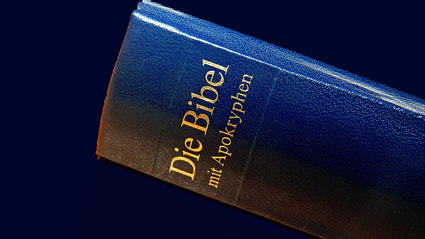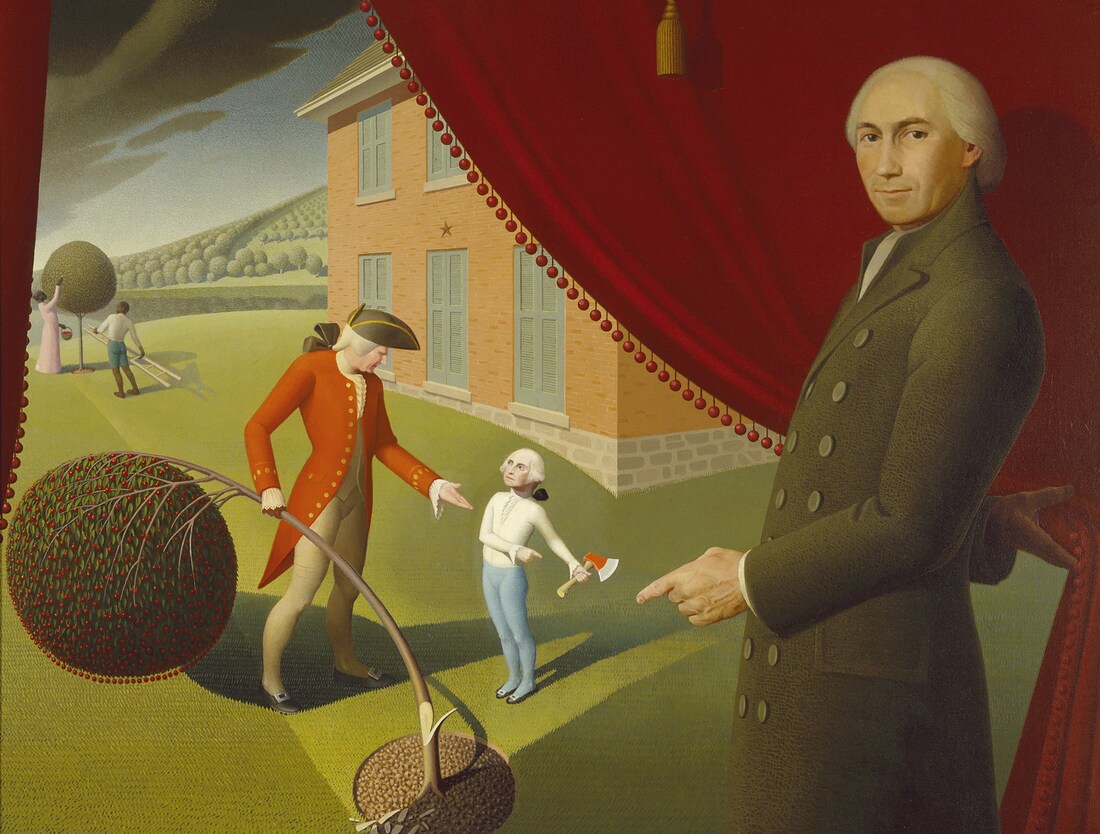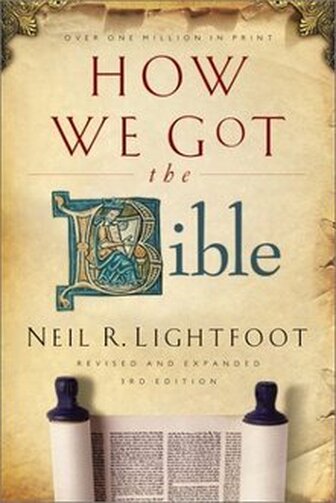beginning at 7:00 pm on Wednesdays.
at the church of Christ in Carthage, Missouri, south of the Ford dealership
PLEASE JOIN US!
| Why is the cherry tree incident discounted or rejected by most historians and left out of most reputable history books? Is the cherry tree story true? Is part of it true? There are no primary documents to testify to its truth - only stories that have been passed down through relatives and friends. What do you think? Watch the short video here for more information. | |
Our focus for this study hinges on answering these two big questions. The goal is to get closer to the answers each week in our class.
Is the Bible accurate and dependable?
The Apocrypha
| The Apocryphal books include the following (which will be discussed in more detail in our Wednesday evening class):
|
"Non-Catholic editions of the English Bible since 1535, including early editions of the familiar King James Version, separate these apocryphal books from the canonical Old Testament."

Consider the four divisions under which the books under consideration are placed based upon their literary form: Historical, Legendary, Prophetic, and Ethical/Devotional. Our author describes each, beginning on page 166, before explaining the reasons they are rejected, starting on page 167.
Many have questioned why the books are not included in the canon of Scripture, asking the question, Who gets to decide whether a book is inspired or not? Lightfoot suggests the following answers to alleviate our concerns. If we wonder if we are missing out on a part of the Word of God, we do well to read what Lightfoot penned. He says:
"These books were never included in the Hebrew canon of the Old Testament..."
"These books, as far as the evidence goes, were never accepted as canonical by Jesus and his apostles..."
"These books were not accepted as Scripture by such Jewish writers of the first century as Philo and Josephus; by the Jewish council at Jamnia (c. A.D. 90); and by such eminent Christian writers as Origen and Jerome..."
"These books do not evidence intrinsic qualities of inspiration..."
"These books have been shrouded with continual uncertainty..."
"These books cannot be maintained on a compromise basis..."
"Objections to these books cannot be overruled by dictatorial authority..."
How About the New TEstament?
Likewise, Paul also refers to extra-Biblical material (2 Timothy 3:8). He calls a Greek poet a "prophet" (Titus 1:12). How are these references explained?
|
|
|
| These titles are undoubtedly appealing. Who wouldn't want to read Peter's actual account of the Gospel! Consider, however, some of the content included in these non-canonical books:
|
We contend that the Bible and everything it contains is supported by:
|
|
|
|
Should faith alone be enough to drive you to drive you to your knees? Is "blind" faith a stronger kind of faith? If so, then why did God provide so much evidence?














































